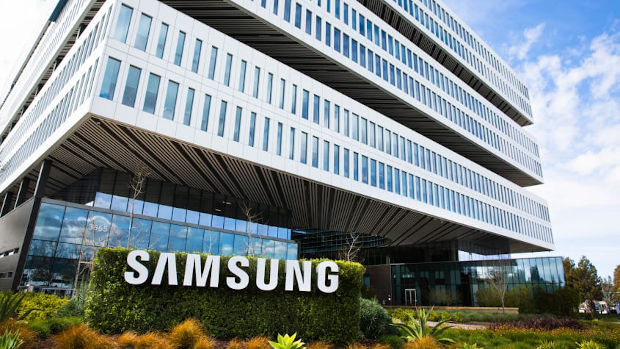
Palm Hills allocates EGP 30 m for backing Egyptian athletes
Palm Hills, Egypt’s leading real estate developer, allocated EGP 30 million for supporting Egyptian athletes under ...

Samsung Electronics plans to invest over KRW 7 trillion by 2030 in environmental management activities – including semiconductor process gas reduction, e-waste collection and recycling, water resource preservation, and pollutant minimization – by 2030 and transparently disclose the progress and results of the implementation of the Strategy regularly via its sustainability report and website.
In the 2023 edition of its Sustainability Report, Samsung said its New Environmental Strategy – announced in September 2022 – was developed under the company’s commitment to achieve net zero by 2050 joining the world’s drive to combat climate change; maximize resource circularity to advance towards a circular economy; and continuously address environmental challenges through technological innovation.
The strategy aims to address global environmental issues through its innovative technologies.
This paradigm shift is essential for its sustainable growth and will serve as an important momentum to reinforce its competitiveness.
This effort is expected to bring positive change to the broader ecosystem of the ICT (information and communications technology) industry as we engage in the manufacturing and supply of an extensive range of products and services
Samsung is a vertically integrated ICT manufacturer involved in all electronics sectors from semiconductors to smartphones, TVs, and home appliances. As a company of vast scale responsible for the supply of an extensive range of products and services, it is inevitably faced with significant obstacles in meeting its net zero targets including the transition to renewable energy. However, it has taken up the challenge to contribute to resolving one of the most pressing issues threatening humanity; climate change.
Samsung plans to achieve carbon neutrality by 2050 by driving Scopes 1 and 2 emissions to net zero. Carbon neutrality will be achieved first by the DX Division by 2030, followed by the company level including the DS Division by 2050 or sooner.
As for reducing Scope 1 emissions through technological innovation, Samsung is concentrating its resources on carbon emissions reduction technologies that reduce Scope 1 emissions generated from its operations.
Direct carbon emissions from its operational sites are mostly process gases from the semiconductor manufacturing process and emissions from the use of fossil fuels such as LNG(Liquefied Natural Gas).
Samsung plans to develop new technologies for improving process gas treatment efficiency by 2030 and expand carbon emissions reduction facilities across all of its manufacturing lines. In order to reduce the use of LNG-fueled boilers, Samsung will seek ways to utilize waste heat and introduce electric heat sources. Moreover, it will switch all corporate vehicles – approximately 1,500 – to electric vehicles by 2027.
Samsung joined the RE100 initiative to reduce its Scope 2 emissions – indirect carbon emissions from power consumption – and achieve the transition to renewable energy for its electricity use by 2050.
Despite the challenge of being a large energy user with limited renewable energy supply – especially in Korea, Samsung is committed to transitioning to renewable energy by 2050.
It will first complete energy transition at all of its global operations sites by 2027 (Central and South America by 2025; and Southeast Asia, CIS member states, and Africa by 2027).
For its sites in the US, China, Europe, Vietnam, India, and Brazil that have already reached this goal, Samsung plans to expand direct power purchase agreements (PPAs) centering on the regions equipped with active renewable energy policies and systems.
Samsung is actively collaborating with various stakeholders, including industry peers and civil society organizations, to increase the supply of renewable energy.
As part of this effort, the company joined the Asia Clean Energy Coalition (ACEC) as a founding member during the 27th Conference of the Parties (COP27) of the UN Framework on Climate Change (UNFCCC).
Samsung is participating as a member of the steering committee as well as country-working groups to facilitate the supply of renewable energy in the region. Moreover, it joined the Semiconductor Climate Consortium (SCC) as a founding member in November 2022 and has been appointed as a governing council member in January 2023.
In this capacity, it aims to play an active role in collectively addressing the climate challenges as an industry. The company plans to voice its views on ways to facilitate GHG emissions reduction through effective target and roadmap setting and standardization.
Palm Hills, Egypt’s leading real estate developer, allocated EGP 30 million for supporting Egyptian athletes under ...
Extreme weather events were the primary drivers in 18 countries where over 77 million people faced ...
Over 100 SDG-aligned projects with a total investment scope of $ 50 billion have been presented during the ...


اترك تعليقا